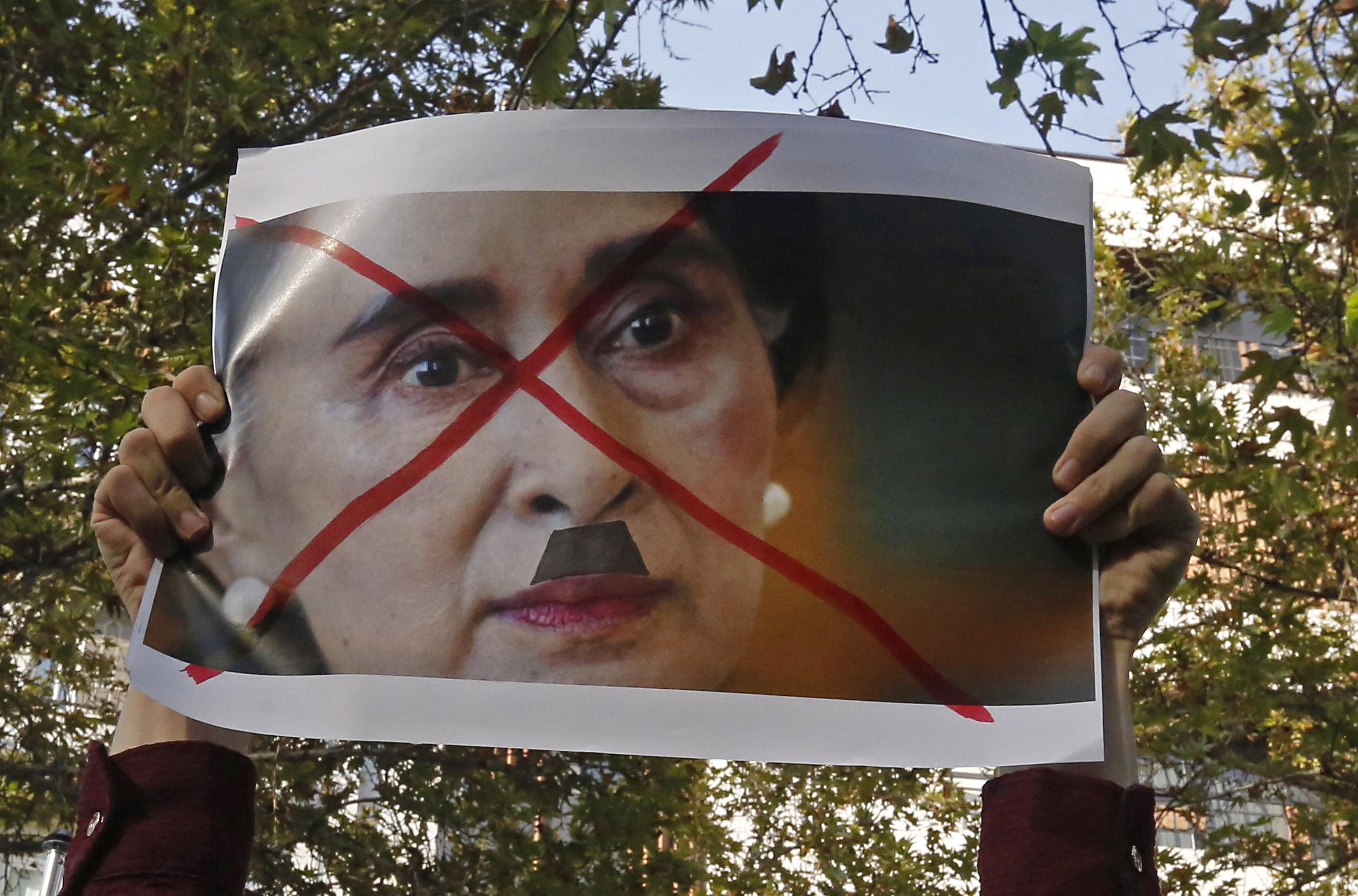Aung San Suu Kyi set to miss the UN General Assembly due to Burma Rohingya crisis
‘She is trying to control the security situation, to have internal peace and stability, and to prevent the spread of communal conflict,’ spokesman says

Burma’s leader Aung San Suu Kyi will miss the United Nations General Assembly this month because of the Rohingya crisis, her office has said.
The announcement comes amid increased international pressure and calls for her to be stripped of her Nobel Peace Prize, for failing to act to stop mass killings and displacements of Rohingya Muslims.
Addressing why she won’t travel to New York, her spokesman Zaw Htay said she was focused on the crisis. Ms Suu Kyi did attend the General Assembly last year.
“She is trying to control the security situation, to have internal peace and stability, and to prevent the spread of communal conflict,” he said.
Another spokesman from her National League for Democracy (NLD) party insisted she did not fear condemnation from her UN colleagues.
“She’s never afraid of facing criticism or confronting problems,” Aung Shin said. “Perhaps she’s got more pressing matters here to deal with.”
Among those who have criticised Suu Kyi’s failure to act is fellow Nobel laureate Desmond Tutu.
“If the political price of your ascension to the highest office in Myanmar is your silence, the price is surely too steep,” he wrote in a letter.
The latest round of violence began on 25 August, after Rohingya militants attacked police posts in the western Rakhine state.

The resulting military counter-offensive has triggered a mass exodus of Rohingya to neighbouring Bangladesh, with as many as 370,000 fleeing over the past few weeks.
Inside Burma, refugees and human rights organisations say villages are being burned to the ground by the military and local Buddhist groups, in a move designed to force them out of the country.
The security situation and control exercised by the military in the area means it’s also difficult to get aid to those who need it, humanitarian groups say.
Burma recently rejected a ceasefire declared by the Arakan Rohingya Salvation Army insurgents, which was supposed to make it possible for aid to be sent to some of the most affected areas.
UN High Commissioner of Human Rights Zeid Ra’ad al-Hussein has called the “severe and widespread discrimination against the Rohingya population” a “textbook example of ethnic cleansing”.
“I call on the government to end its current cruel military operation, with accountability for all violations that have occurred,” he said this week.
The United Nations Security Council is due to have a private meeting to discuss the crisis.
Join our commenting forum
Join thought-provoking conversations, follow other Independent readers and see their replies
Comments
Bookmark popover
Removed from bookmarks